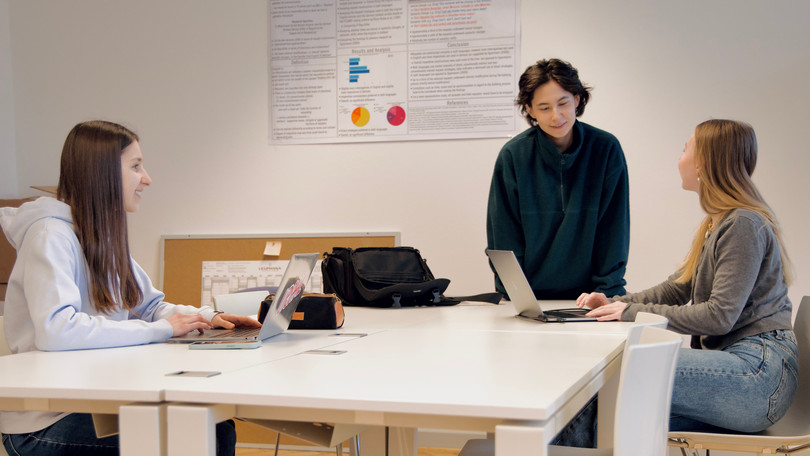LinA stands for Language in Action, and that is precisely what the LinA Lab offers support for: the collection and analysis of linguistic data. Whether you need to record and transcribe spoken language, perform qualitative text analysis, conduct linguistic work with language corpora, or create online questionnaires, we can provide you with the technical equipment and methodological advice you need. In workshops or individual consultations, we will give you an introduction to the relevant programmes and software. In addition, you can borrow technical equipment for audio recording and transcription from us during our opening hours. This way, nothing will stand in the way of your next university project, bachelor's or master's thesis!
The LinA Lab is run by the Chair of English Linguistics and cooperates with the Leuphana Methodology Centre.
All information about the borrowing process and an overview of all resources can be found under the menu item Borrowing and Advice.There you will also find the borrowing form to fill out.
Contact
LinA-Lab
Universitätsallee 1, C1.114
21335 Lüneburg
Telephone: +49.4131.677-1690
E-Mail: lina-lab@leuphana.de
Instagram: linalab.leuphana
Opening hours during the semester break WiSe 25/26
09.02., 16:00-18:00 (Viktoria)
10.02., 14:00-16:00 (Ann-Marie)
11.02., 15:00-16:30 (Clara)
12.02., 11:00-13:00 (Lina)
17.02., 12:00-14:00 (Julika)
18.02., 14:00-15:30 (Clara)
25.02., 12:00-14:00 (Isabel)
27.02., 12:00-14:00 (Julika)
04.03., 12:00-14:00 (Isabel)
09.03., 16:00-18:00 (Viktoria)
16.03., 14:00-16:00 (Ann-Marie)
24.03., 11:00-13:00 (Lina)

